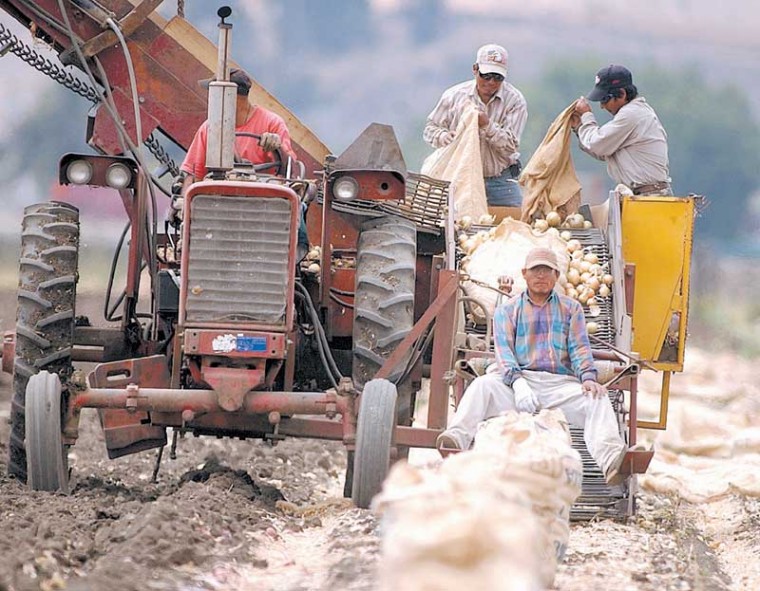Hollister
– San Benito County specialty crop farmers moved one step closer
Friday to enjoying a slice of $1.6 billion in federal funds to be
distributed in the next five years for grants and research.
Hollister – San Benito County specialty crop farmers moved one step closer Friday to enjoying a slice of $1.6 billion in federal funds to be distributed in the next five years for grants and research.
The national farm bill passed the U.S. House of Representatives by a vote of 231-191. The bill, which was created during the Great Depression and has grown to a $300 billion package, traditionally subsidizes only large commodity crops such as wheat, corn, soy, rice and cotton.
The measure must pass through Congress every five years. The 2002 farm bill expires in September.
Local growers receive little in the form of federal farm subsidies, as is the case with most of California. In 2005, San Benito County received $1.5 million, or 0.2 percent of the funds.
“One problem with the farm bill is other states get a hell of a lot more money,” said Paul Matulich, the San Benito County Agricultural Commissioner. “Iowa gets more money than California. I don’t know why.”
But Matulich admitted the 2007 farm bill, if signed into law, would benefit California growers more than ever before.
Funding for specialty crops could create new opportunities for local growers, San Benito County Farm Bureau President George Bonacich said.
“Mostly, if I read it correctly, it’s concerning research and marketing, not so much direct payments,” Bonacich said.
The specialty crop designation covers a large variety of products, including fruits, nuts and vegetables such as baby lettuce, bell peppers and broccoli.
“The only thing that we’ve ever gotten is disaster aid and our own insurance,” said Bonacich, who grows apricots here and in the Central Valley.
Less than a year after an E. coli outbreak traced to spinach processed in San Benito County, many in the leafy green industry have urged lawmakers to fund safety research. The farm bill includes $25 million for produce safety grants.
Advisers at the University of California Cooperative Extension in San Benito County hope to receive funds from the bill’s specialty crop research initiative, which totals $215 million.
“Definitely we look forward to looking at the process of applying,” said Sergio Garcia, a livestock adviser with the extension.
The farm bill would also offer $200 million for pest detection, an important addition for California, Matulich said.
Recent detection of the light brown apple moth in counties adjacent to San Benito County has local agriculture officials on high alert. The pest threatens quarantine of nurseries, one of the county’s top industries, and a wide variety of fruit crops.
Opponents of the farm bill argue that it subsidizes the richest farmers. The Cato Institute, a Washington, D.C.-based libertarian think tank, has proposed that the farm bill be eliminated altogether.
Sallie James, a policy analyst with the institute, acknowledged that the farm bill in its current form offers improvements for smaller California farmers but that lawmakers missed an opportunity for major reform.
“It’s better for California farmers, maybe, but not California taxpayers,” James said.
House Speaker Nancy Pelosi, D-San Francisco, told the Associated Press that the measure “signals change and shows a new direction in our farm policy,” but fell well short of the changes many in her party had demanded.
The Associated Press contributed to this story









